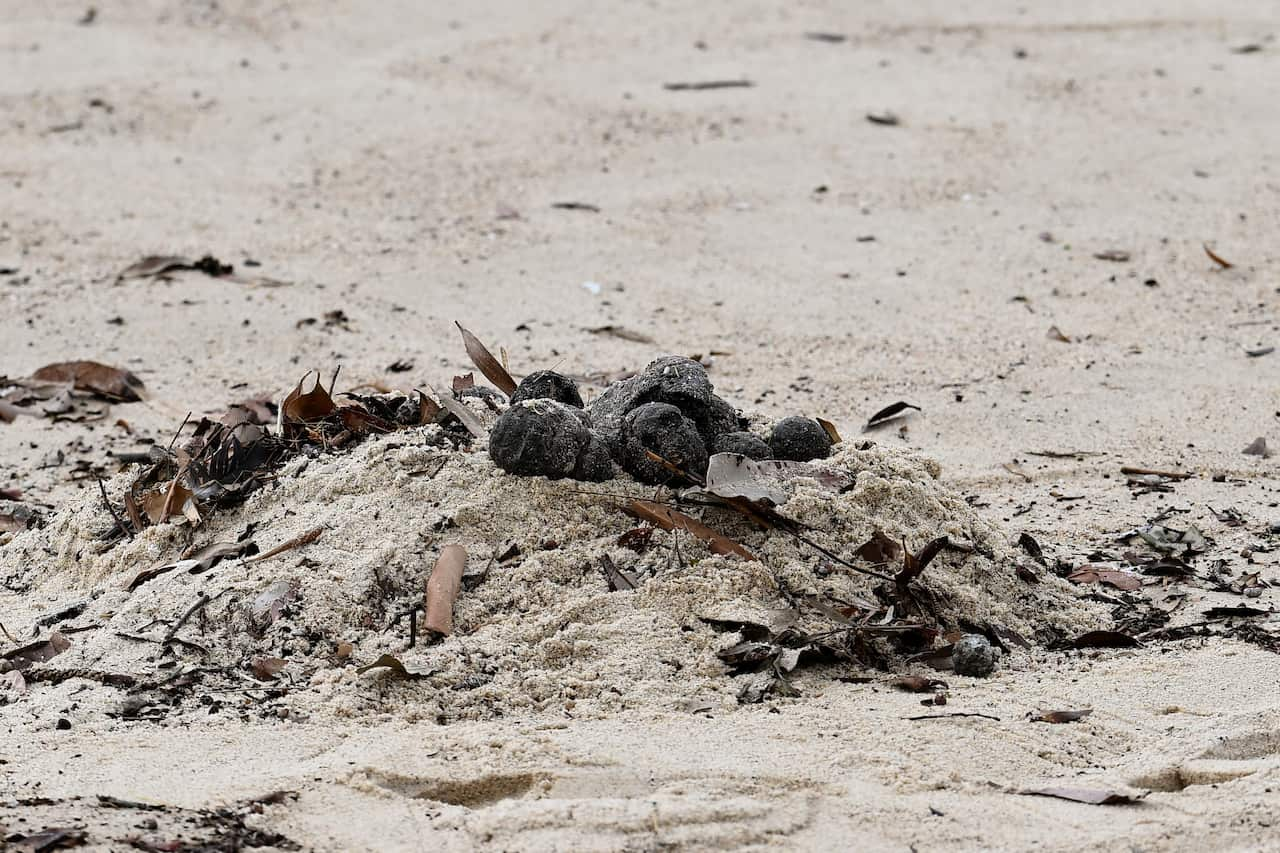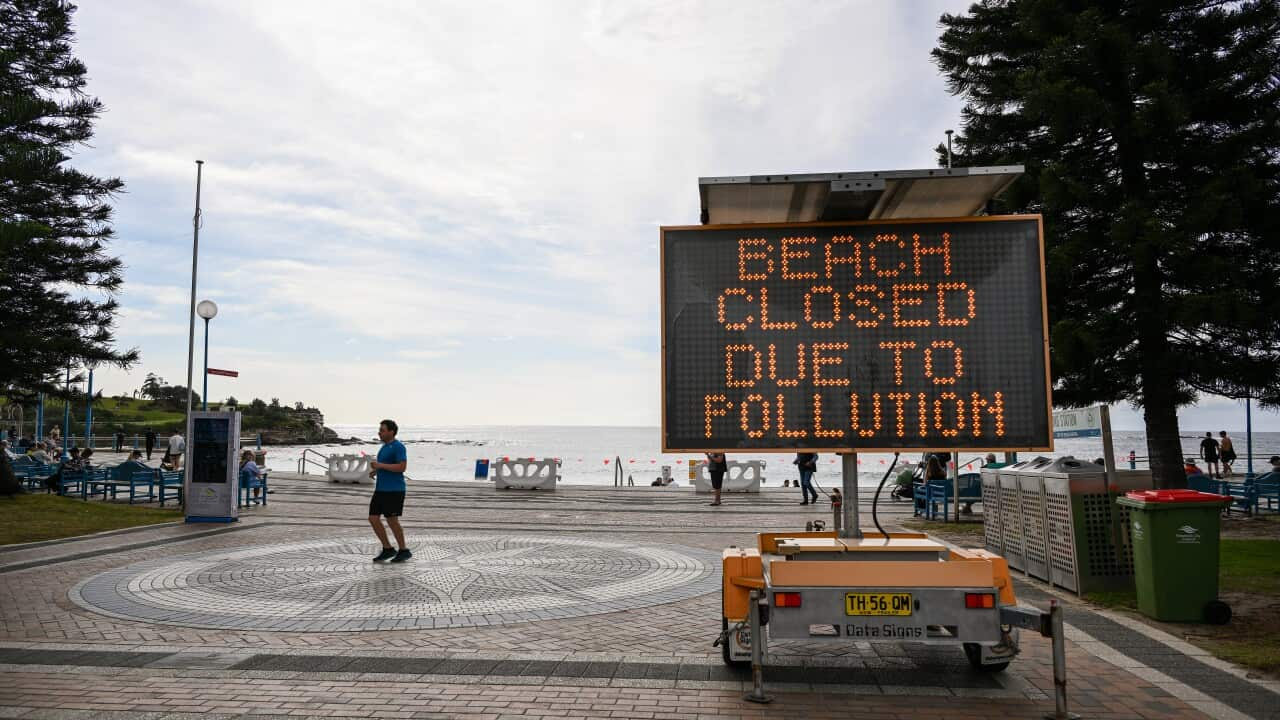Mysterious sphere-shaped pieces of debris that forced the closure of two popular Sydney beaches has been identified as “tar balls”, the local council says.
Beachgoers had been warned not to go near the golf ball-sized debris dotting Coogee and Gordon’s Bay beaches in the city’s east, which were first spotted by lifeguards on Tuesday.
Randwick City Council said in a statement on Wednesday night that preliminary tests showed the “material is a hydrocarbon-based pollutant which is consistent with the makeup of tar balls”.
Hydrocarbons are the chief components of petroleum-based products.
The beaches will remain closed amid clean-up efforts and Mayor Dylan Parker said the council had been working with the NSW Environmental Protection Authority, the state’s Port Authority, and Transport for NSW.
“We have engaged an expert occupational hygienist and a specialist waste removal contractor who are currently systematically removing the debris from the beaches in accordance with an agreed safe work method statement developed with the NSW EPA,” Parker said. “This process will likely continue tomorrow.”
Mysterious, black sphere-shaped debris washed up on Coogee Beach on Tuesday. Source: AAP / Steven Markham
Such events were typically the result of oil spills or seepage.
But earlier, Parker had said he wasn’t aware of recent oil spills nearby.
And the NSW Port Authority said no oil spills had been reported by vessels, according to The Guardian.
What are tar balls?
Tar balls are small pieces of oil — often remnants of spills — but they can sometimes occur naturally from seeping crude oil.
“While some tar balls may be as large as pancakes, most are coin-sized,” the United States’ National Oceanic and Atmospheric Administration (NOAA) says. “Tar balls are very persistent in the marine environment and can travel hundreds of miles.”
They are commonly known to wash up on the Californian coastline from seepage on the sea floor.
Writing in the conversation, CSIRO principal research scientist Sharon Hook said tar balls are dangerous to animals because the oil can be carcinogenic.
The NOAA says people should avoid contact with tar balls, which may cause allergic reactions such as rashes.
With reporting by the Australian Associated Press.

